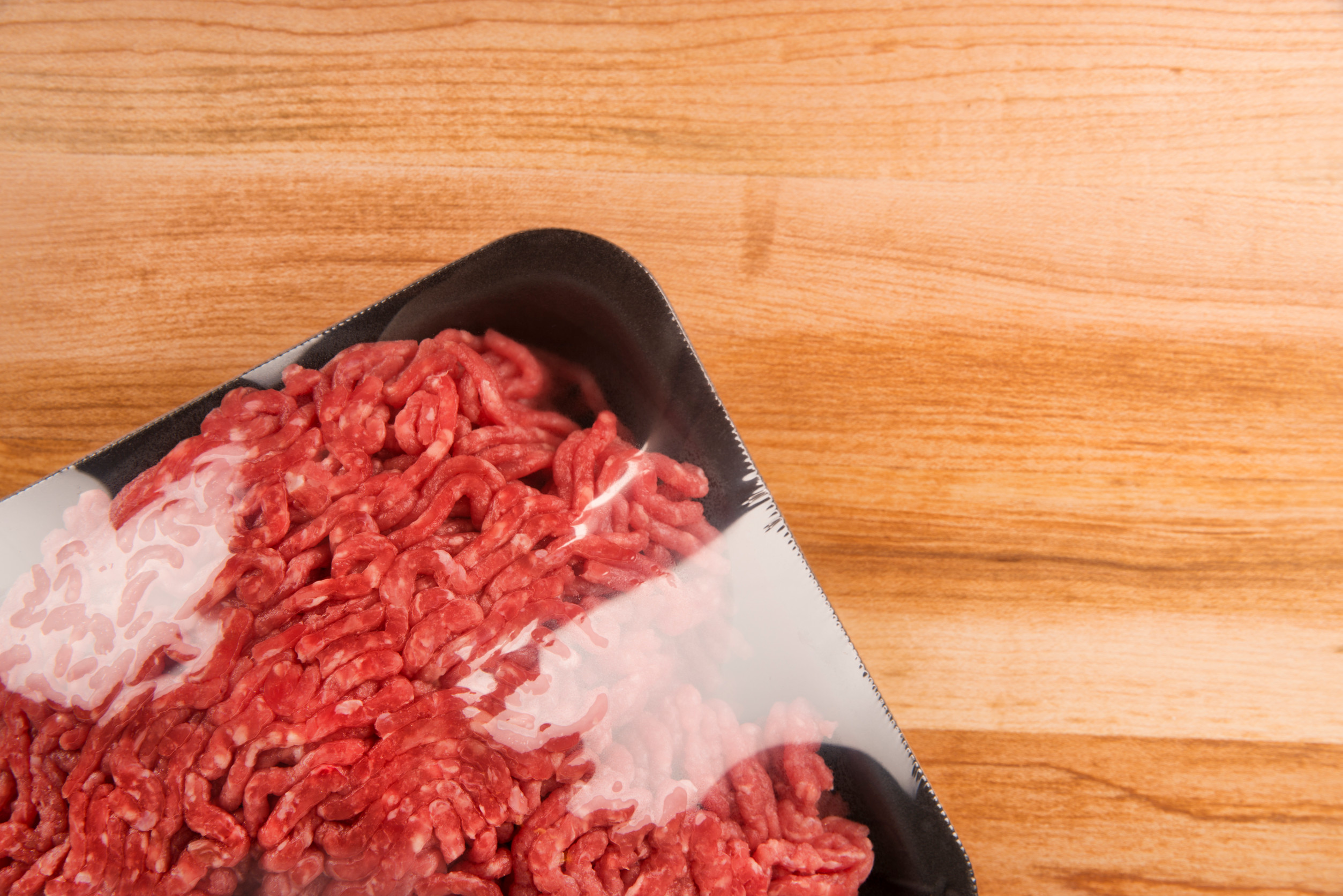
Walk through any grocery store meat aisle, and you’ll see labels like “grass-fed,” “natural,” and “no hormones added” plastered across ground beef packages. They sound healthy, ethical, and premium—but many of them don’t mean what shoppers think. Meat labeling has become a marketing game, where buzzwords are used to justify higher prices without always delivering better quality. Understanding what’s real versus what’s regulated can save you money and help you make smarter choices. Here are seven ground beef labels that may not mean what you think they do.
1. “Grass-Fed” Doesn’t Mean 100% Grass-Fed
The term “grass-fed” gives the impression that cows spend their entire lives grazing freely in open pastures. In reality, many “grass-fed” cattle still finish their diets on grain before processing—a detail often hidden in fine print. Unless the label says “100% grass-fed” or “grass-finished,” it likely means the cows started on grass but were fattened on corn to boost marbling. That grain-finishing step changes the flavor profile and fat composition dramatically. If you want true grass-fed beef, look for USDA certifications or third-party seals like “American Grassfed Association.”
2. “Organic” Doesn’t Mean Hormone-Free or Local
When you see the word “organic,” it’s easy to assume it covers every aspect of animal welfare—but it doesn’t. Organic beef means the cows were fed organic feed and weren’t treated with antibiotics or synthetic hormones. However, it says nothing about whether the cows were raised locally, humanely, or entirely on pasture. Many organic cattle are raised in large-scale operations that still resemble feedlots, just with organic grain. The label guarantees better feed quality, not necessarily a better life for the animal or a smaller carbon footprint.
3. “No Hormones Added” Is Technically Misleading
This label sounds reassuring—but here’s the catch: federal law already prohibits the use of hormones in raising pigs and poultry, though it allows them in cattle. When you see “no hormones added” on ground beef, it’s often accompanied by a required disclaimer that says, “Federal regulations prohibit the use of hormones in pork or poultry.” That means you’re paying extra for something that’s already illegal in certain meats. In the case of beef, it’s only meaningful if it’s verified by the USDA, which few shoppers check. Marketing loves this phrase because it sounds safer than it actually is.
4. “Natural” Means Almost Nothing
“Natural” might be one of the most abused words in food labeling. According to the USDA, it simply means the product contains no artificial ingredients or added colors and has been minimally processed. It says nothing about how the animal was raised, what it was fed, or whether it received antibiotics. That means “natural” beef could come from cows raised in crowded feedlots or treated with synthetic hormones. The term appeals to emotion, not regulation—so don’t confuse it with “organic” or “pasture-raised.”
5. “Lean” and “Extra Lean” Don’t Mean Healthier
You’ll often see percentages like “90% lean” or “93% lean” on ground beef, leading shoppers to believe it’s the healthiest choice. While leaner beef has less fat, it can also mean less flavor and less satisfaction, which can cause you to eat more overall. The USDA’s “lean” label simply measures fat-to-protein ratios—it doesn’t account for sodium, additives, or freshness. In some cases, processors blend in lean trimmings from multiple sources, reducing quality consistency. If you’re buying for health reasons, opt for grass-fed or single-origin beef instead of focusing only on numbers.
6. “Product of the USA” Might Not Be From the USA
This one shocks a lot of shoppers. Under current labeling rules, beef can be labeled as a “Product of the USA” even if the cattle were born and raised in another country—so long as the meat is processed or packaged in the U.S. That means your “American” burger might have come from Australia, Brazil, or Mexico before being repackaged stateside. While some companies voluntarily disclose origin details, most rely on the patriotic branding to justify premium pricing. To ensure your beef is truly domestic, look for “Born, Raised, and Harvested in the USA.”
7. “Humanely Raised” Has No Legal Definition
When you read “humanely raised,” you might picture cows grazing freely with plenty of space and care. Unfortunately, that phrase isn’t federally regulated and can mean vastly different things depending on the brand. Some companies meet only the bare minimum requirements for animal welfare, while others genuinely follow higher ethical standards. The only way to know for sure is to look for third-party certifications like “Certified Humane” or “Animal Welfare Approved.” Without them, “humanely raised” is more marketing than meaning.
What Your Ground Beef Label Isn’t Telling You
The next time you shop for ground beef, remember that not every label is designed to inform you—many are designed to persuade you. Words like “natural,” “local,” and “premium” often create the illusion of quality without real backing. The smartest shoppers look for verified certifications and clear sourcing information instead of trusting vague buzzwords. By understanding what those labels actually mean, you can make better choices for your health, your wallet, and your values. Because in today’s grocery aisles, knowing the truth is just as important as knowing what’s for dinner.
Which food label do you think is the most misleading? Share your grocery store experiences in the comments below.
What to Read Next
- The Real Reason Beef Prices Keep Soaring (It’s Not Just Inflation)
- The Truth About Arby’s Roast Beef That Could Change Your Order
- 6 Chain Steakhouses Serving the Worst Cuts of Beef
- 13 Common Groceries That Turn Dangerous After They Expire
- 10 Fresh Meat Cuts That Save Money Without Sacrificing Flavor
The post 7 Ground Beef Labels That Don’t Mean What You Think They Do appeared first on Grocery Coupon Guide.







